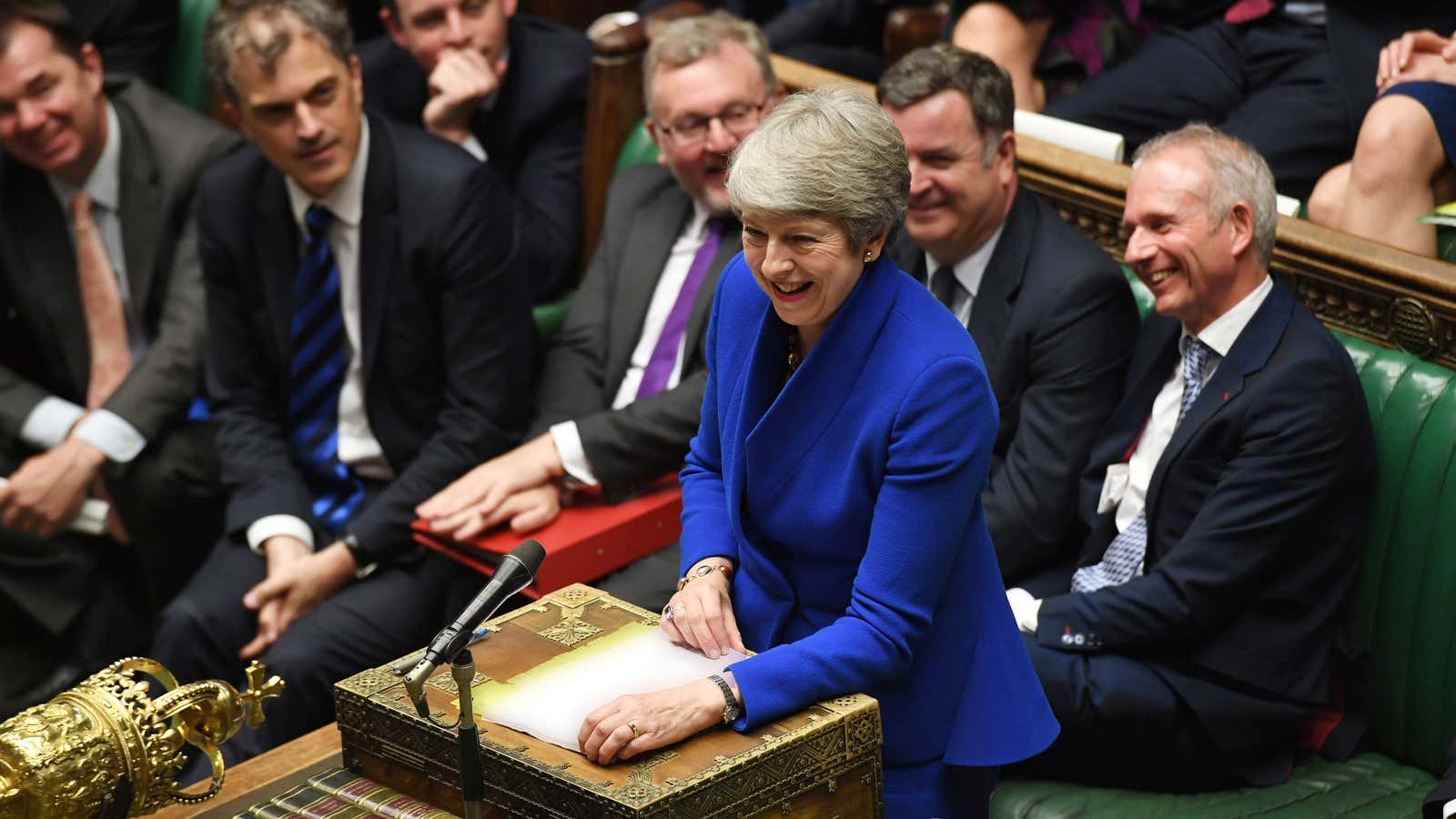Theresa May officially stepped down as UK leader today, and gave her final address outside 10 Downing Street, which followed a record-long session at her final Prime Minister’s Questions that lasted more than an hour.
During it, May was asked by Jo Swinson, the first female leader of the Liberal Democrat party, for “what advice she has for women across the country on how to deal with those men who think they could do a better job but are not prepared to do the actual work?”
Parliament erupted in laughter after the question, in what was a thinly veiled reference to May’s successor Boris Johnson. Johnson was announced the next Conservative party leader yesterday, after winning some 92,000 votes, and he took office today.
“My advice,” May smiled, “my advice to all women is actually be true to yourself, persevere, keep going, and be true to the vision that you are working for.”
May is known for evading questions, and did not mention her successor, but took it as an opportunity to poke at—in a way that delighted some lawmakers—the opposition Labour party. She also congratulated Swinson for becoming the Liberal Democrat leader this week, and took stock of how the UK parties fare when it comes to representation at the leadership level.
“My party has had two women leaders, the Liberal [Democrat] party now has a woman leader, the SNP has a woman leader, as do the DUP, Plaid [Cymru], and the Greens. Even, even—wait for it, wait for it—” she winked, “even the Independent Tigger Group, Change UK, or whatever they are calling themselves this week, are now onto their second woman leader. There is only one party in this House letting this side down: the Labour party.”
Though Labour has not had an elected female leader, it does fare better when it comes to representation among MPs—with nearly half its lawmakers women, far ahead of any party, compared to about 20% for the Conservatives. Its member base is among the most equitable of the parties.
But the pointed criticism is perhaps unsurprising, given the tense relationship May has had with opposition leader Jeremy Corbyn. Earlier in the session, May also called on Corbyn to step down as Labour party leader: “He and I are very different people,” she said, “but what I think we both have in common is our commitment to our constituencies… as a party leader who has accepted when her time was up, perhaps the time is now for him to do the same.”
Corbyn, as a veteran left-wing politician, is a divisive figure among British lawmakers and voters. Still, he retains majority support of party members, receiving more than 251,000 votes during the 2015 Labour leadership election, nearly three times what Boris Johnson just secured to become prime minister.
